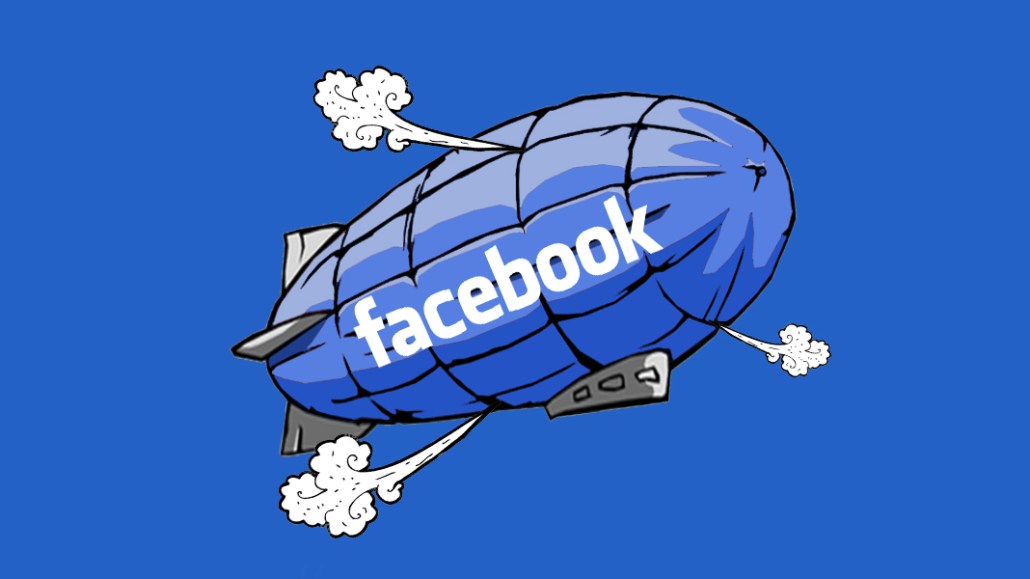Secure your place at the Digiday Media Buying Summit in Nashville, March 2-4
Facebook’s MRC brand safety audit gets underway — but it doesn’t yet include the news feed

Facebook has agreed on the scope of its brand safety audit by the Media Rating Council, though the initial phase, which is currently getting underway, will not include the social network’s news feed.
Facebook first committed to the MRC brand safety audit in late June amid growing pressure from advertisers and campaign groups to take more effective action against the spread of hate speech and misinformation on its platform. More than 1,200 companies participated in the July “Stop Hate for Profit” advertiser boycott, according to the protest’s organizers.
An MRC accreditation is seen as an important industry stamp of approval to indicate a platform’s internal controls and measurement systems can be trusted to work effectively and without bias.
The initial scope of the new audit will assess the brand safety processes applied to monetized ad placements within Facebook and Instagram, alongside the metrics reported in its advertiser delivery report.
It does not, however, include an assessment of Facebook’s advertiser adjacency controls for content that appears on its news feed. It also will not, at this stage, look at how Facebook’s brand safety controls are applied to ads delivered on the Facebook Audience Network.
Eventually, MRC is seeking to audit all of Facebook’s environments, including its news feeds, said George Ivie, MRC CEO, via email.
Before that happens, the two organizations have agreed to work together on what they are both describing as an education process. As part of that process, Facebook’s engineers will walk MRC’s auditors through how enforcement of its community standards are applied to the news feed. However, Facebook does not want to initiate this process until after the U.S. elections.
“Facebook has requested this because they believe these feed processes are difficult and highly dynamic — essentially they want to make sure MRC is fully informed and the scope is responsive to the environment,” said Ivie. “We agreed, rather than just try and force the audit forward and possibly overlook something.”
Still, for many advertisers, harmful content in news feeds is among their biggest current concerns when considering which tech platforms to place their dollars with — as July’s ad boycott demonstrated.
“Social ad dollars are spent in the feed and run alongside whatever’s being consumed there,” said Mike Henry, CEO of brand safety platform OpenSlate. “In-feed ad adjacency is a huge blind spot for marketers and has become the number one brand safety issue of 2020.”
MRC’s audits are conducted by external accounting firms, primarily EY. The company being audited is responsible for the cost, which can range from hundreds of thousands of dollars to over a million dollars, spending on the scope and how many consultant hours are required.
As part of its membership of the Global Alliance for Responsible Media, Facebook — plus YouTube and Twitter — last month agreed to a common set of standards to address harmful content. Alongside agreeing to audits, the platforms committed to a set of common definitions around what constitutes harmful content; the development of more standardized reporting on harmful content; “advertising adjacency solutions” to give advertisers more controls over their ads appearing next to unsuitable content — using either their own tech, or that of third-parties.
YouTube’s MRC brand safety audit is still ongoing. GARM said in September the goal was to have all major platforms either audited for brand safety, or to have a plan in place for an audit, by the end of the year.
More in Media

From feeds to streets: How mega influencer Haley Baylee is diversifying beyond platform algorithms
Kalil is partnering with LinkNYC to take her social media content into the real world and the streets of NYC.

‘A brand trip’: How the creator economy showed up at this year’s Super Bowl
Super Bowl 2026 had more on-the-ground brand activations and creator participation than ever, showcasing how it’s become a massive IRL moment for the creator economy.

Media Briefing: Turning scraped content into paid assets — Amazon and Microsoft build AI marketplaces
Amazon plans an AI content marketplace to join Microsoft’s efforts and pay publishers — but it relies on AI com stop scraping for free.








